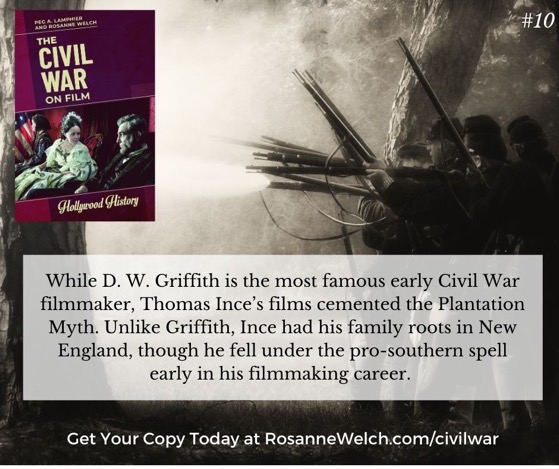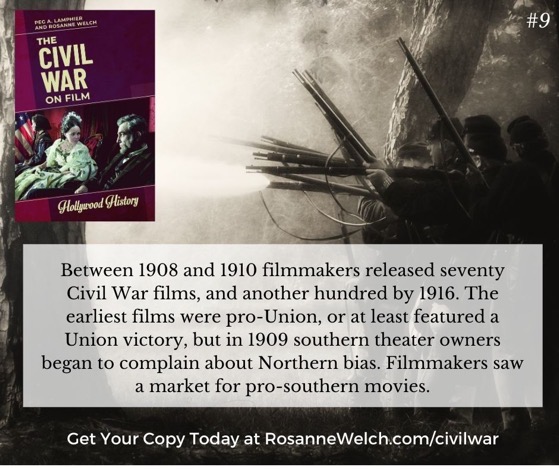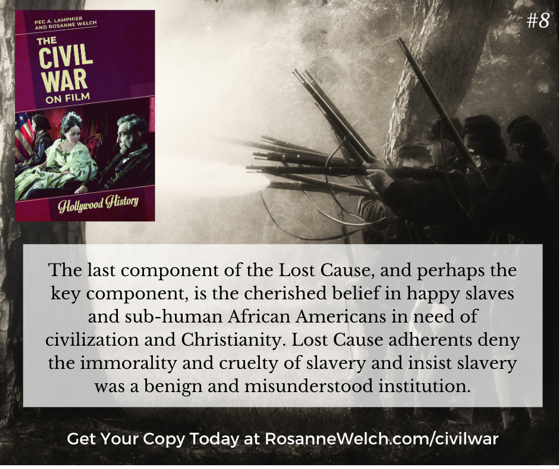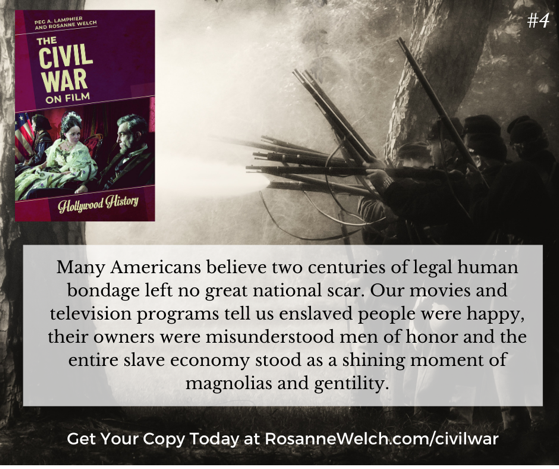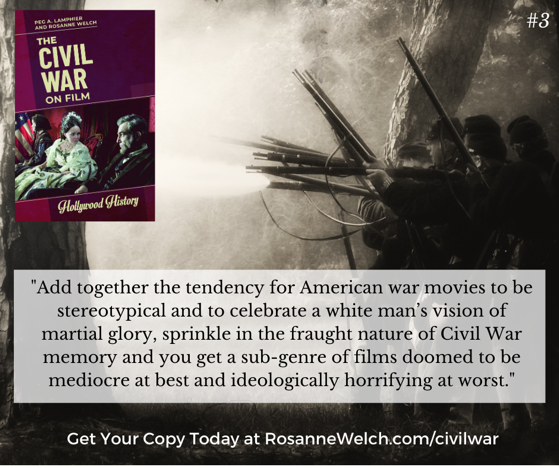While D. W. Griffith is the most famous early Civil War filmmaker, Thomas Ince’s films cemented the Plantation Myth. Unlike Griffith, Ince had his family roots in New England, though he fell under the pro-southern spell early in his filmmaking career.
Movies profiled in this book:
